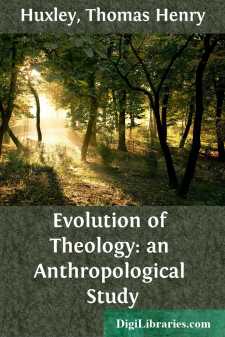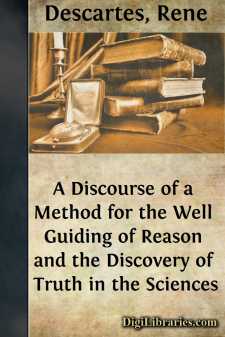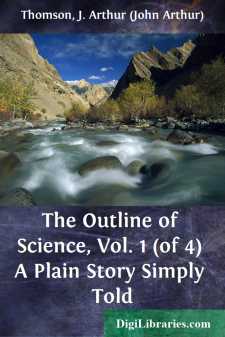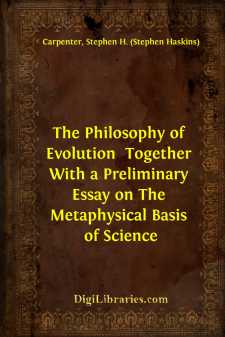Science
- Astronomy 18
- Biology 40
- Chemistry 13
- Electricity 1
- General
- History 6
- Light 1
- Paleontology 2
- Philosophy & Social Aspects 1
- Physics 3
- Relativity 2
- Study & Teaching 1
- Waves & Wave Mechanics 1
General Books
Sort by:
INTRODUCTION The Great War has caused a vast destruction of the sounder portion of the belligerent peoples and it is certain that in the next generation the progeny of their weaker members will constitute a much larger proportion of the whole than would have been the case if the War had not occurred. Owing to this immeasurable calamity that has befallen the white race, the question of eugenics has...
more...
I conceive that the origin, the growth, the decline, and the fall of those speculations respecting the existence, the powers, and the dispositions of beings analogous to men, but more or less devoid of corporeal qualities, which may be broadly included under the head of theology, are phenomena the study of which legitimately falls within the province of the anthropologist. And it is purely as a...
more...
by:
Rene Descartes
PART. I. Right understanding is the most equally divided thing in the World; for every one beleevs himself so well stor’d with it, that even those who in all other things are the hardest to be pleas’d, seldom desire more of it then they have; wherein it is not likely that all Men are deceived: But it rather witnesseth, That the faculty of right-judging and distinguishing truth from falshood (which...
more...
PREFACE A collection of about 2000 questions asked by children forms the foundation on which this book is built. Rather than decide what it is that children ought to know, or what knowledge could best be fitted into some educational theory, an attempt was made to find out what children want to know. The obvious way to discover this was to let them ask questions. The questions collected were asked by...
more...
ON THE ADVISABLENESS OF IMPROVING NATURAL KNOWLEDGE. This time two hundred years ago—in the beginning of January, 1666—those of our forefathers who inhabited this great and ancient city, took breath between the shocks of two fearful calamities, one not quite past, although its fury had abated; the other to come. Within a few yards of the very spot on which we are assembled, so the tradition runs,...
more...
On the 30th November, 1858, Jagadis Chunder was born, in a respectable Hindu family, which hails from village Rarikhal, situated in the Vikrampur Pargana of the Dacca District, in Bengal. He passed his boyhood at Faridpur, where his father, the late Babu Bhugwan Chunder Bose, a member of the then Subordinate Executive Service was the Sub-Divisional Officer; and it was there that he derived "the...
more...
by:
Various
THE CAT. PART 1.walk´-ingthoughtknewsheathswatchedstrokedsmoothwon´-dergroundfore´-pawsyawnmis-take´shak´-ingtoesstretchedclaw1. Pussy came walking along the garden-path. Harry watched her, and saw that she did not like the damp ground. 2. She jumped over the pools, and then began to run, shaking her paws as she got to the house. 3. 'Now, a dog does not mind wet feet,' Harry thought;...
more...
by:
John Joly
PREFACE Tins volume contains twelve essays written at various timesduring recent years. Many of them are studies contributed toScientific Reviews or delivered as popular lectures. Some areexpositions of views the scientific basis of which may beregarded as established. Others—the greater number—may bedescribed as attempting the solution of problems which cannot beapproached by direct observation....
more...
Gallick Reports: Or, A Collection of Criminal Cases adjudg'd in the Courts of Judicature in France. In which is Comprized, An Account of Arnold du Tilh, an Impostor, who deceived a Man's Wife and Relations, and puzzled, for a long Time, the Parliament of France. Memoirs of the famous Madam de Brinvilliers, who poisoned her Father, and two Brothers, and attempted the Life of her Sister,...
more...
All knowledge is essentially one. The object-matter upon which intellect exerts itself, does not affect the subjective act of knowing. Physics, when stripped of that which is merely contingent, becomes metaphysics. Physical science deals with object-matter, and discusses the signs by which nature communicates her message—that is, phenomena. Metaphysical science has to do with the subject-mind, and...
more...











